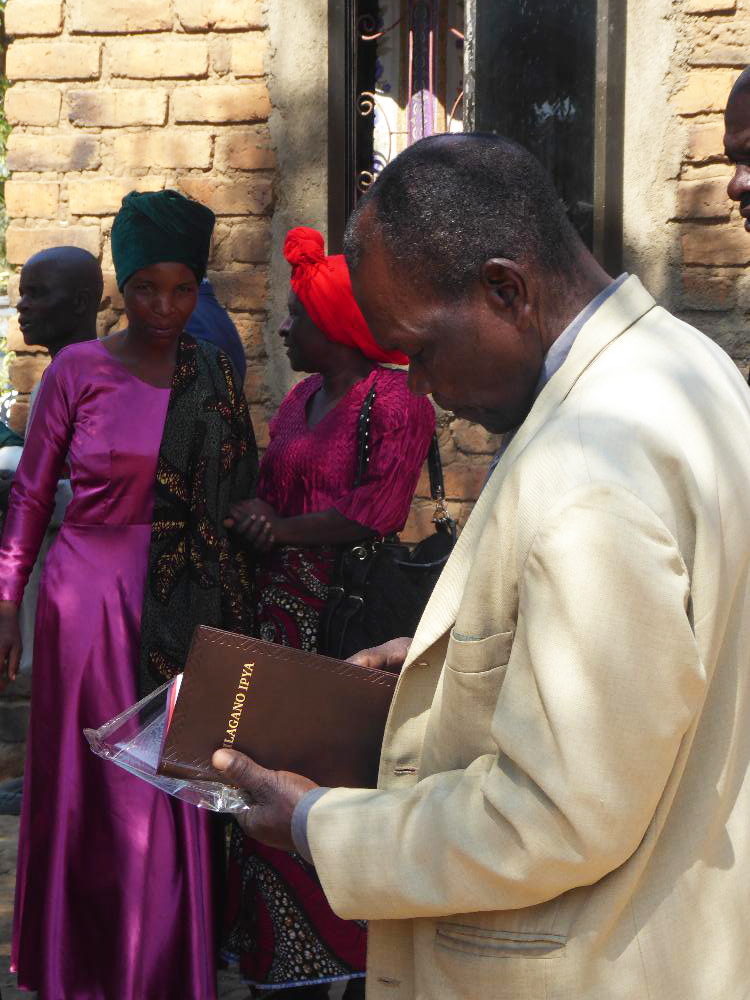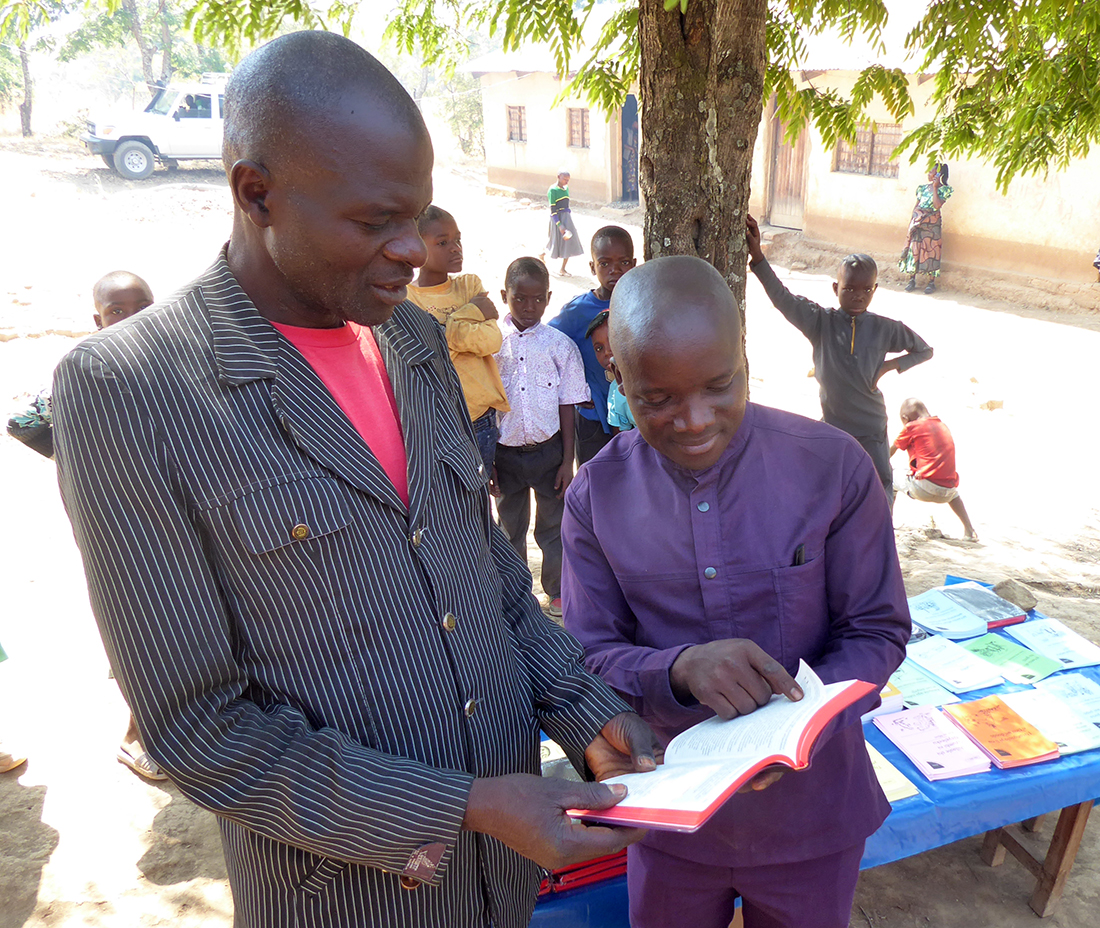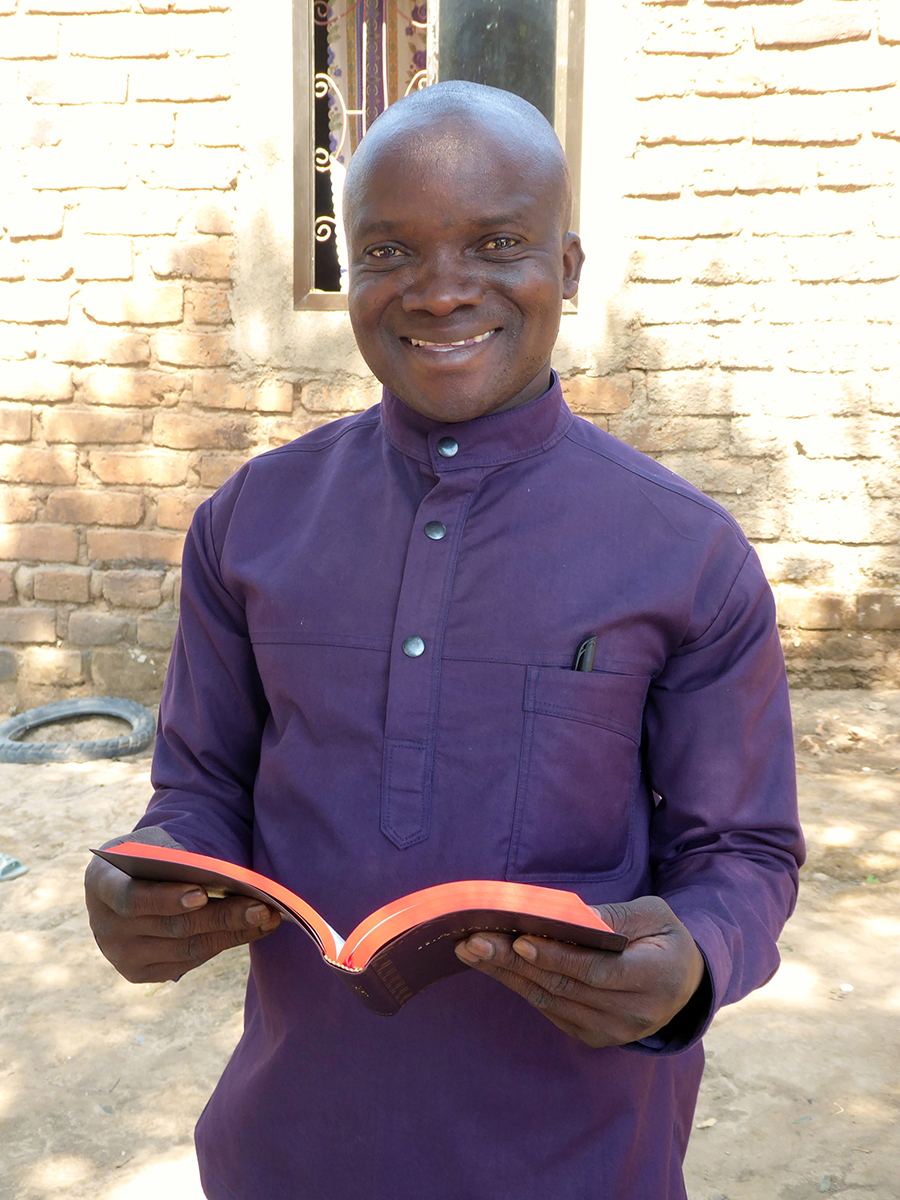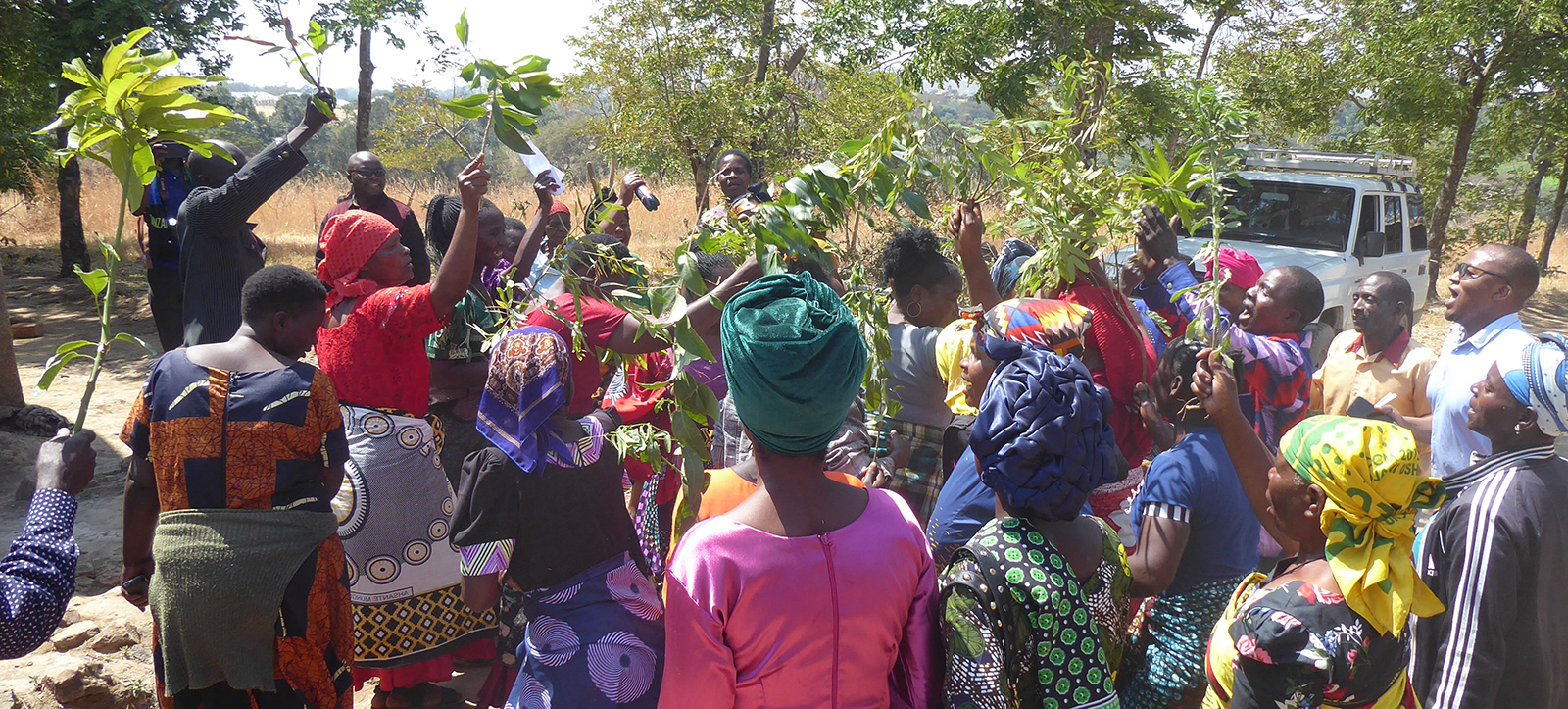It may have taken longer than the others. But perhaps that’s one of the reasons why the launch celebration of the Safwa New Testament on 23 September was such a joyous event.
That, and as Amani Mwandezi, a Safwa man who has helped the Safwa people to engage with their Scriptures for many years, says: ‘They like their language, they want to praise God in their language!’
This joyful moment
Katherine continues: ‘There was a sense of great joy at the launch, with lots of singing and dancing and waving of branches! As the procession with the gift-wrapped box of New Testaments moved into the church, the women who were busy preparing food for everyone came with them. They were waving their big cooking spoons, cooking pots, branches and even tomatoes and onions on sticks! No one wanted to miss this joyful moment!’






